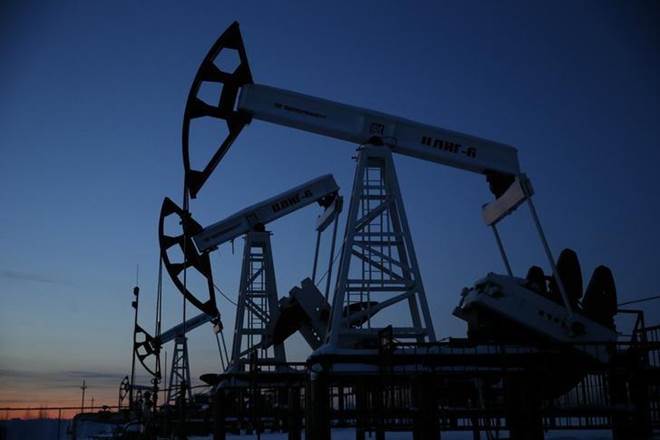By Ahmed Mousa Jiyad.
Any opinions expressed are those of the authors, and do not necessarily reflect the views of Iraq Business News.
Restraining the Game-Changer:
A Decade of Uneven Development in Iraq Petroleum Sector
The development of the Iraqi petroleum sector during the period 2008-2018 represents, from all related aspects, a distinct phase in the sector and in its role in the national economy.
Sector-wide petroleum comprises three different but organically liked sub-sectors through critical forward-backward linkages:
- Upstream (including exploration, field development and production);
- Midstream (pipeline, storage, export terminals and related infrastructures);
- Downstream (mainly, crude oil refining, gas processing, petroleum product distribution and petrochemical industries).
Though the “State” has been the dominant actor in petroleum sector development, the post 2003 period witnessed an erosion of that role through a grand opening of the sector for International Oil Companies- IOCs; different contractual modalities, mostly reflecting the peculiarities and realities of each sub-sector, were proposed or adopted to govern the legal relations with the IOCs.
Thorough and continuing follow-up and research suggest that most of the evidenced development has taken place in the upstream sub-sector, with heavy IOCs involvement in a significant part of the country’ proven oil reserves through four bid rounds that contracted the most prized oilfields; while other two sub-sectors continue-trapped in their chronic misalignment, obsolete technologies and wasteful practices of invaluable natural resource.
Moreover, the “triple shocks”; collapsing oil prices since June 2014 (economic risks) accompanied by Da’esh (security risks) effects and Kurdistan Regional Government-KRG taking-over some of North Oil Company-NOC oilfields (June 2014-October 2017) (political risks) made matters even more devastating. And with the then prevailed notions of “the new normal” and the prospect of “lower-for-longer oil price” that contributed into further deepening the fiscal crisis of the state had elevated the “fear-factor” among Iraqi decision makers.
That, combining with apparent human, systemic and institutional capacity-gaps limitations (business risks), had resulted in:
- Iraq giving important concessions to IOCs without having tangible benefits in return;
- Weakened severely Iraq’s strength in any future negotiation with the IOCs;
- Establishing a powerful precedent for costly domino effects.
Accordingly, the article would argue that, analytically and empirically, a sub-sector focused policy could generate triple-negativities: on the development in that sub-sector; on the entire sector itself and on the sector’s contribution to the development of the national economy.
That, obviously, is a testimony of and an indication to the absence of well thought, coherent and integrated petroleum and energy policy; and to the futility of the “indicative non- mandatory” National Development Plan-NDP.
Hence, the logical consequences and outcomes would exacerbate structural imbalances, deepen vulnerabilities to external factors and increase dependency on oil revenues, which prohibits desirable structural change, diversification and transformation; a vicious circle of dependency and uneven development.
The nature of the topic decides the research methodology. Hence, the article is a multi-disciplinary in its approach focusing on the relevant and important economic, legal, institutional, political economy and geopolitical analytical frameworks and aspects. Also, the article offers evidence-based analysis by relying on official, verifiable and crossed-checked data, information and documentation. Time-series and charts for the ten-years covered period are necessary, and available, for elaboration but avoided for space restriction.
The article adopts a holistic view by addressing the three interrelated levels of analysis: micro, sectoral and macro (national), excluding KRG. Throughout the article, many questions were posed indicating the need for further scholarly work and research investigation. Finally, because of my constant follow-up and frequent contributions on Iraqi energy and petroleum sector, this article refers heavily to some of my previous works and publications.
The article comprises two parts and concluding remarks: part one identifies and analyzes the most important milestones in petroleum upstream development while part two provides assessment of successes and failures in the petroleum sector-wide and their implications for Iraq.
The above is an edited “Abstract and Introduction” of my article published by the academic periodical-IJCIS:
Jiyad, A. M. (2018), ‘Restraining the game-changer: A decade of uneven development in the petroleum sector’, International Journal of Contemporary Iraqi Studies, 12:3, pp. 239–67, doi: 10.1386/jcis.12.3.239_1)
Kindly note that IJCIS, publishes by Intellect Books-UK, is a subscription periodical with a possibility to purchase, online, the entire issue or any of its articles; web-access link will be provided once the printed copy issue is released in the coming days.
Mr Jiyad is an independent development consultant, scholar and Associate with the former Centre for Global Energy Studies (CGES), London. He was formerly a senior economist with the Iraq National Oil Company and Iraq’s Ministry of Oil, Chief Expert for the Council of Ministers, Director at the Ministry of Trade, and International Specialist with UN organizations in Uganda, Sudan and Jordan. He is now based in Norway (Email: mou-jiya(at)online.no, Skype ID: Ahmed Mousa Jiyad). Read more of Mr Jiyad’s biography here.

